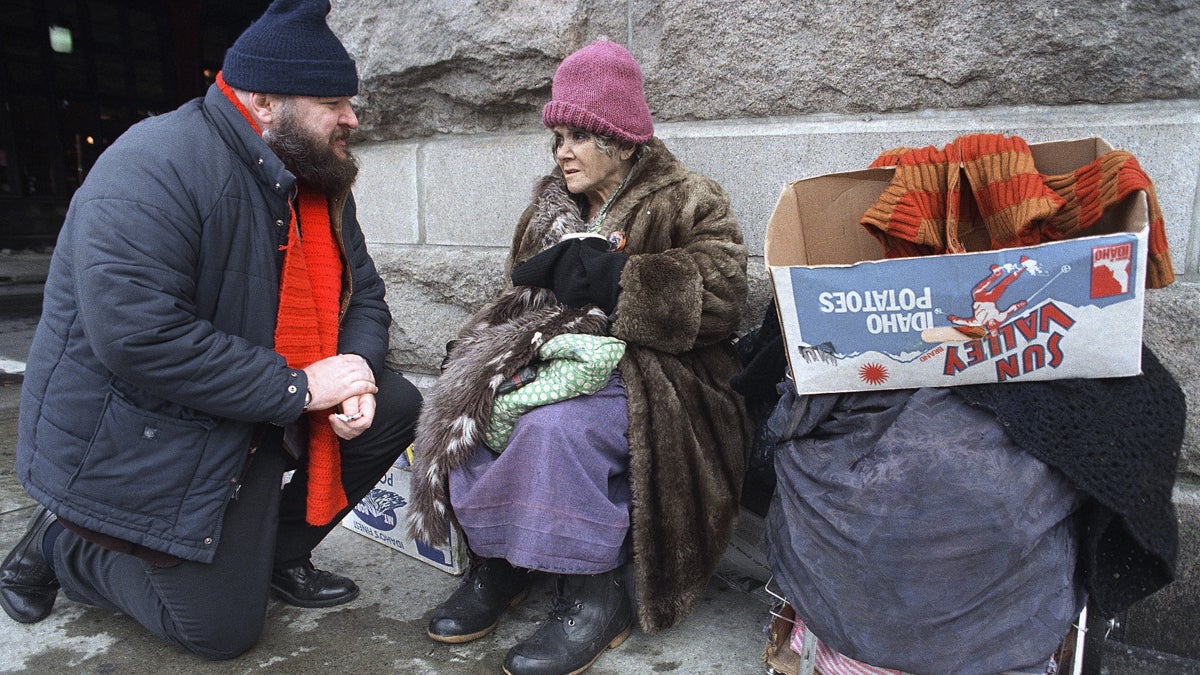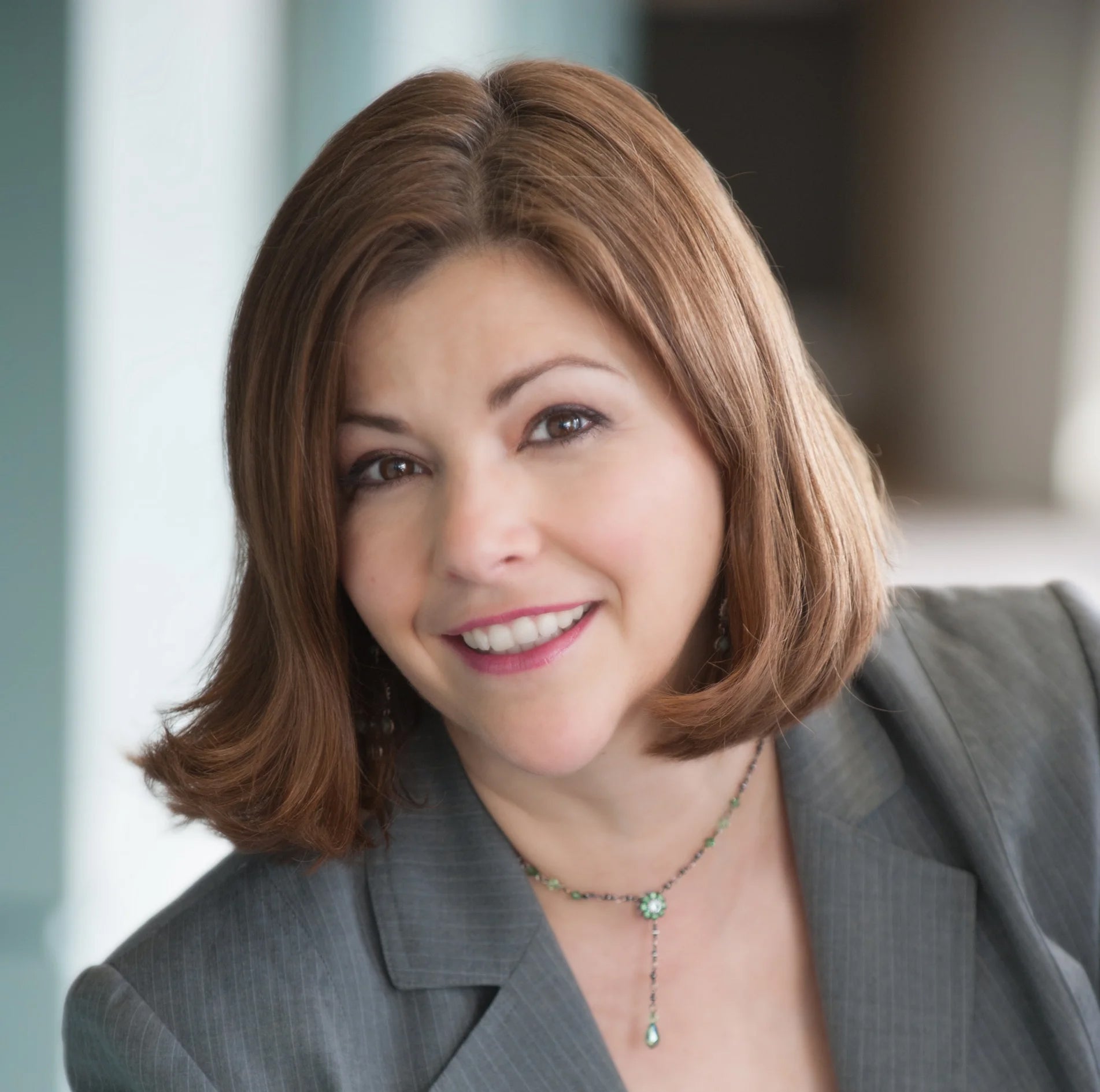Philadelphia mental health advocate Joseph Rogers receives national award

This 1987 photo shows Joseph Rogers, left, talking to Mary Valletta outside the Reading Terminal Market in Philadelphia. Roger led a group at the time that assisted homeless and deinstitutionalized people who live on the streets. (AP Photo/Charles Krupa)
A Philadelphia mental health advocate is being honored with a national award today. Joseph Rogers will receive the “lifetime achievement award” from the federal Substance Abuse and Mental Health Services Administration.
Rogers works for the Mental Health Association of Southeastern Pennsylvania. His big beard and booming voice have been a fixture at outreach events and demonstrations demanding better treatment options for people with mental illnesses.
“Services that really treat the person as an individual and treat the person with respect,” said Rogers. “I know from my own experience — I have a diagnosis of bipolar disorder — that wasn’t the case. My goal has been to get the system to recognize the individual, to recognize that there is hope, and recovery is possible.”
Rogers is a man who speaks his mind, and never shies away from a heated discussion, such as when he spoke on WHYY’s “Radio Times” after the school shootings in Newtown, Conn. He took issue with one of the guests on the show, who said that people with untreated mental illnesses are more likely to commit acts of violence.
“As somebody who has a diagnosis of severe mental illness, I have never committed a violent act in my life,” responded Rogers. “Your constant effort to link those illnesses with violence is doing me personal harm.”
Rogers has pushed for giving people a stronger voice in their own treatment. He fought institutionalization, stereotypical portrayals of people with mental illnesses in pop culture, and has created peer-to-peer counseling programs.
Rogers was unable to travel to Los Angeles to receive his award because of some physical health issues, but he said that he has no intention of slowing down his advocacy work.
WHYY is your source for fact-based, in-depth journalism and information. As a nonprofit organization, we rely on financial support from readers like you. Please give today.


